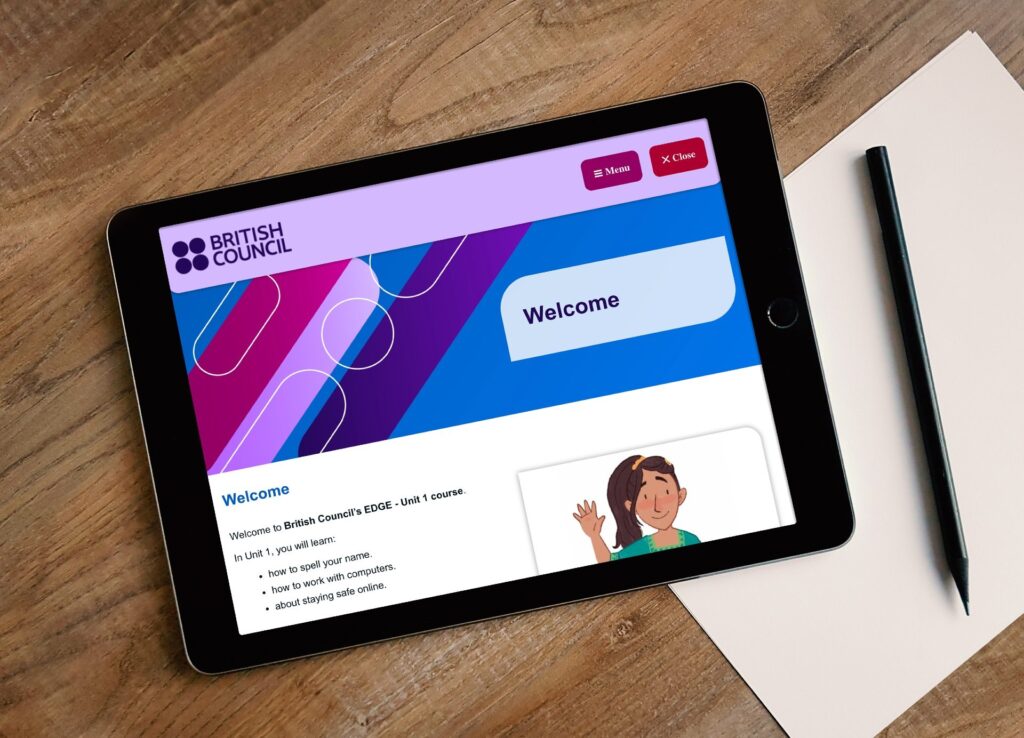Girls living in marginalised communities in South Asia will be able to improve their digital and English language skills thanks to software developed by a tech company from Dunfermline.
eCom Scotland’s learning management system is being used by the British Council – the UK’s international organisation for cultural relations and educational opportunities – to deliver engaging lessons to 13-to-19-year-old girls across the continent.
The girls, who are either currently out-of-school or living in marginalised communities, are enrolled in the council’s English and Digital for Girls’ Education (EDGE) programme, which contains some 210 hours of content.
The upgrade in software means the teenagers – who live in areas where connectivity is patchy or nonexistent – can access the course materials on their digital devices at all times, even whilst offline.
In addition, eCom has enhanced and adapted the programme’s paper-based content for digital delivery in a way that aims to ensure the most appropriate and effective learning experience.
Delivering EDGE digitally enables the British Council to avoid the “logistical challenges” involved in shipping paper-based resources to numerous locations, while simultaneously making “significant” financial savings.
Wendy Edie, eCom’s managing director, said: “In choosing eCom’s eNetEnterprise as their learning management system (LMS) to delivery and monitor the EDGE programme, we believe the British Council can be confident that both the system and the eLearning content are fully accessible at any time, on whatever device the user chooses – regardless of their location.
“For users who don’t always have a secure, reliable connection to the internet, eNetEnterprise’s offline synchronising capability ensures those learners can still access the eLearning and participate in the programme in the same way as those using the system online. Learners can download content and upload assessment data while they’re connected but can consume the content offline, with tracking data cached until the device is back online.”
The peer-led programme aims to support adolescent girls to make more informed and independent life choices so they can contribute more fully to the family, the economy and society.
It trains peer group leaders to facilitate after-school clubs for girls within their communities. In these clubs, girls can discuss social issues, improve their English proficiency and learn digital and other skills such as critical thinking and problem solving.
To date, more than 14,000 girls have benefitted through EDGE and an impact study has shown that girls on this programme are able to use their personal agency to impact their lives – with examples of girls being able to return to school, delay an early marriage or seek paid employment while staying in school as a result of the new skills they have gained.
Some 1,200 peer leaders trained in three countries have delivered 531 clubs within their communities to 12,990 marginalised girls around Bangladesh, India and Nepal.
